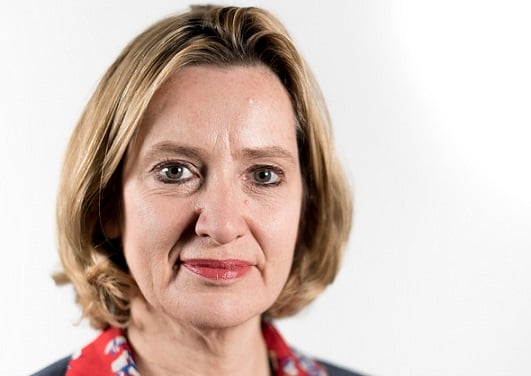
Home Secretary Amber Rudd
Photo: The Prime Minister's Office via Visualhunt.com / CC BY-NC
Government doubles number of visas for ‘exceptional’ arts talent outside EU
Home Secretary Amber Rudd believes the changes will ensure the UK remains “at the heart of world culture”.
The Government has announced it is doubling the number of ‘exceptional talent visas’ distributed to “established or emergent leaders” in arts, tech, humanities and sciences.
2,000 visas will now be available each year to people who can provide significant evidence of their accomplishments – such as an Emmy or a Man Booker Prize – with the recipient granted a right to work in the UK for ten years.
Announcing the changes, Home Secretary Amber Rudd declared they would ensure the UK remained “at the heart of world culture”.
Arts Council England (ACE) oversees arts and culture applications and is currently permitted to grant 250 visas. The additional 1,000 visas will be made available to ACE and the four other ‘Designated Competent Bodies’ according to need.
An ACE spokesperson said: “We will be working closely with the Home Office in the coming weeks to discuss what this will mean for artists and creatives, and how the Arts Council can support this as a Designated Competent Body.”
The Creative Industries Federation (CIF) released a report on Global Talent earlier this year, stressing the “vital role” played by international workers in making the UK a “world leader in the creative industries”. They welcomed the announcement.
A spokesperson said: “It is encouraging that Government recognises the importance of international talent to the creative industries, a point which the Federation has long been making on behalf of the sector.”
But the industry group emphasised that the visa system still requires an overhaul to fit the needs of the creative industries. “This is only the beginning of the work needed to improve our immigration system. We will continue to push for further improvements, including the introduction of a visa for creative freelancers and scrapping the immigration skills charge.
“Alongside this we will lobby to improve education and skills for homegrown talent.”
In the report, CIF called for a parallel ‘creative freelancer’ visa, which would have a shorter duration and permit a wider subset of arms-length bodies to grant visas. The industry body has long stressed the need for a post-Brexit visa system that makes recruiting creatives from outside the UK easier.
Join the Discussion
You must be logged in to post a comment.